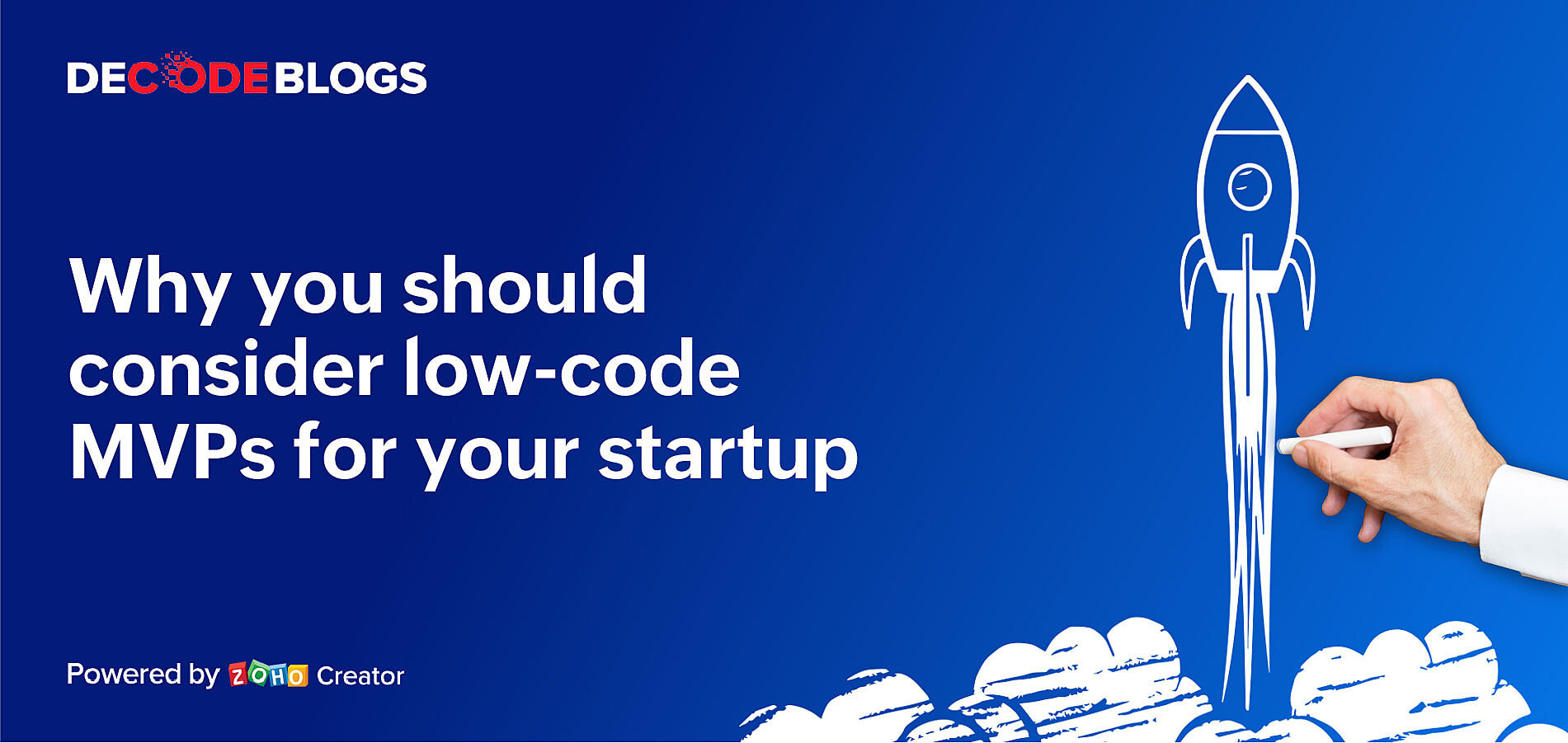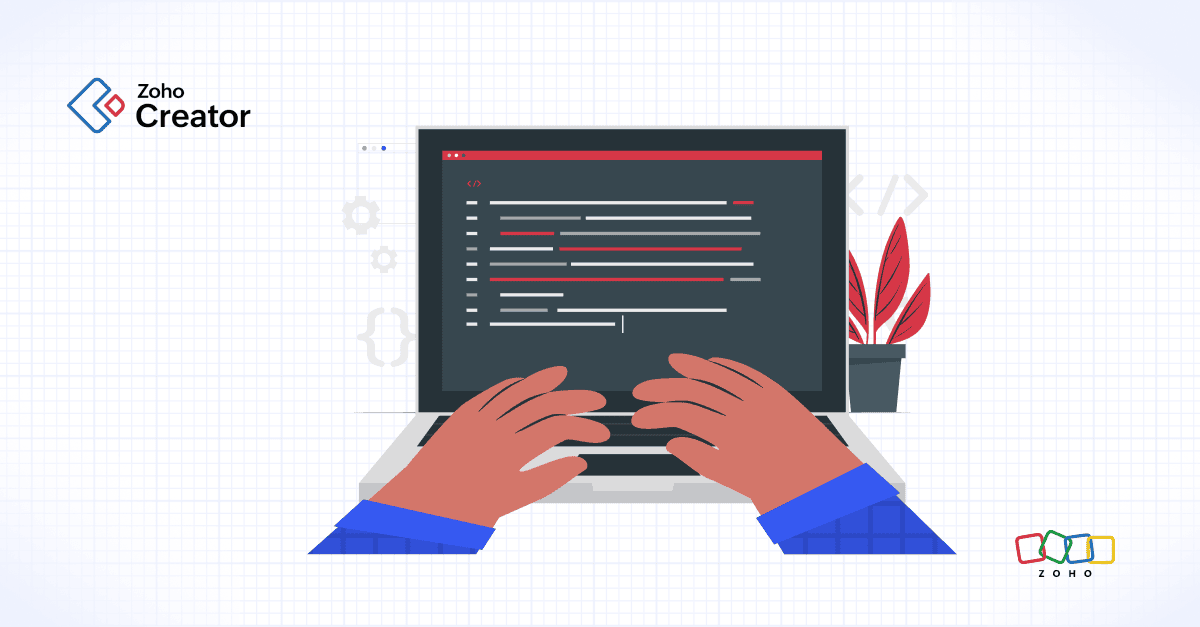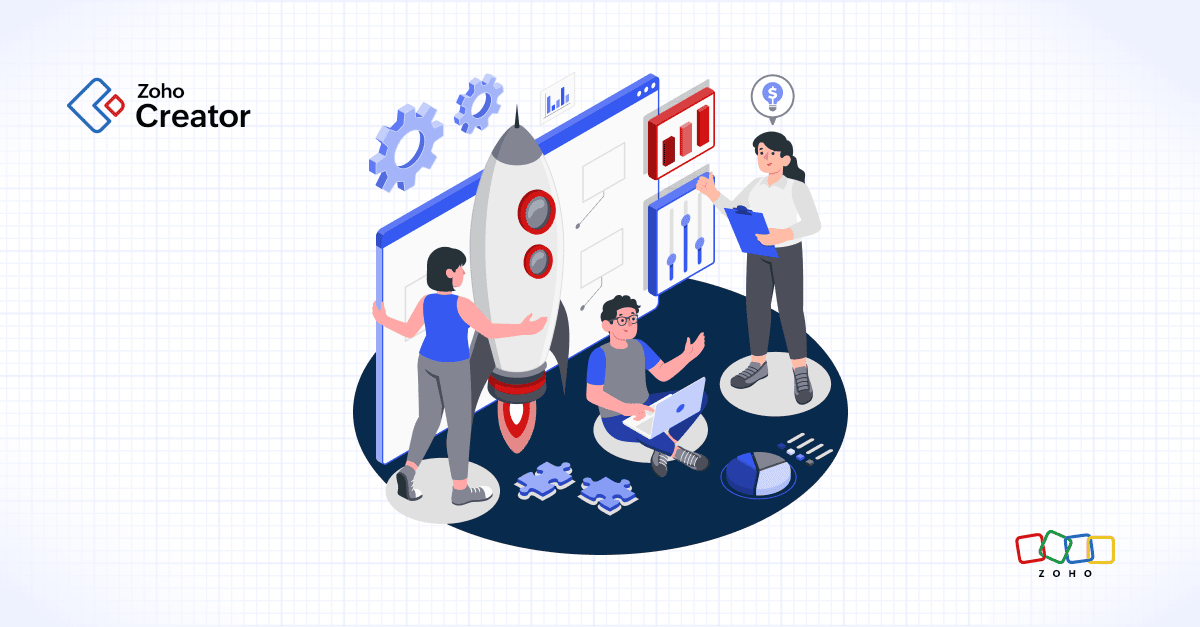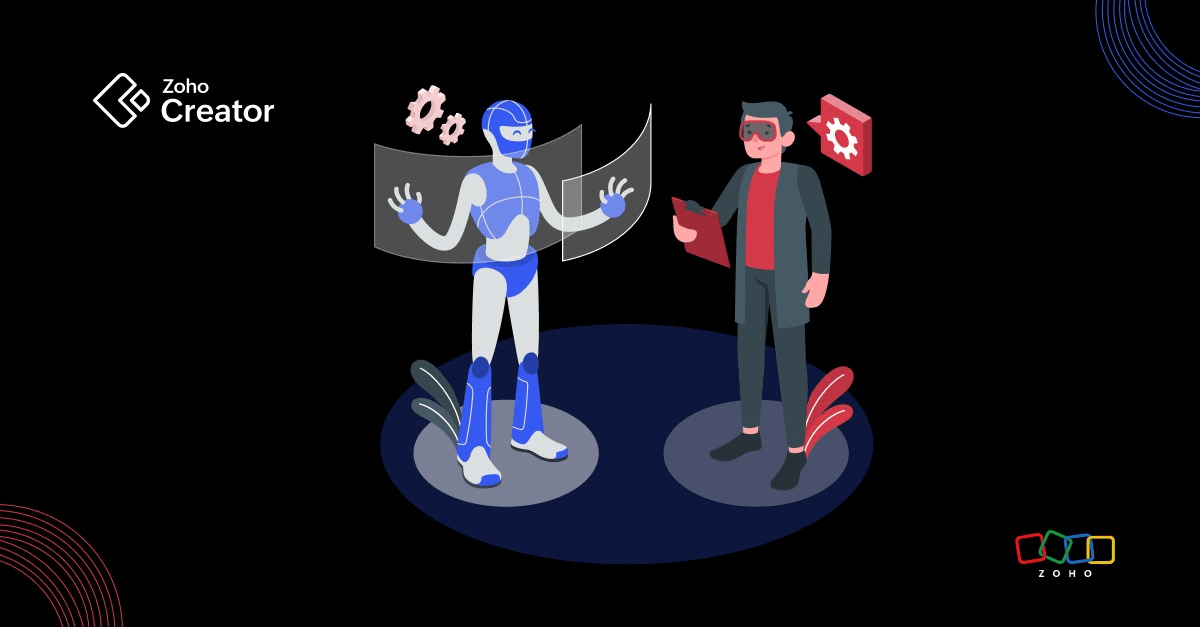- HOME
- Know Your Tech
- Why you should consider low-code MVPs for your startup
Why you should consider low-code MVPs for your startup
- Last Updated : April 20, 2023
- 1.5K Views
- 5 Min Read

Introduction
For a startup, the tech industry is one of the hardest to break into. The tech world is fiercely competitive, for enterprises and consumers alike; and the tech marketplace bears witness to breakthroughs in emerging technologies and disruptive product launches on a daily basis. Despite more and more startups reaching unicorn status in 2021, many new businesses are still struggling to get their product ideas off the ground and launch their apps successfully.
Since startups usually have limited resources, smaller development groups, and tighter launch windows, it makes sense to adopt an approach that is more linear and has a direct impact on business. That's where the need for an MVP, a minimum viable product, arises.
The MVP approach for startups
Hitting the right market segment at the right time with a new product can prove to be a challenge for any startup. As an entrepreneur, you hope to launch your product with all features functioning flawlessly, having identified and solved all the problems discovered during the initial market study process.
However, no matter how much you validate and research your product, it will never be as effective as getting your app into the hands of your customers and having them start using it. You can then utilize the user feedback to make incremental improvements and release frequent app iterations.
One way for a startup to solicit and secure feedback is to deliver a minimum viable product (MVP). Of all the approaches used to launch products, the MVP approach is the quickest and most established route to success.
What is an MVP?
The concept of MVPs gained popularity after Eric Ries described it in his book The Lean Startup.
A minimum viable product (MVP) is a theory from the Lean Startup movement that stresses the impact of learning through user feedback in product development. Eric Ries defines an MVP as "that version of a new product which allows a team to collect the maximum amount of validated learning about customers with the least effort". The MVP you produce is an actual product with minimal features that early adopters of your app can use. You can then gather feedback from your user base to improve and build a better product that will resonate with future users.
The MVP approach, despite the name, is not about creating minimal or ill-equipped products. The minimum viable product approach involves prioritizing a product's features to the point that it delivers only key functionality, while keeping the nice-to-have features on the backburner.
For example, you can build an MVP which is a service that runs its process manually in the backend, but has the appearance of being automated. You can then collect feedback to help you decide which features should be automated. The primary benefit is that you can understand your customers’ interest in your product without fully developing the product, minimizing development costs.
Most of the successful apps we know today, like Airbnb, Uber, Facebook, Spotify, Amazon, and many others, started out as minimum viable products. This approach enabled these startups to become success stories and seize the market when the time was right.
Why low-code MVPs are popular with startups
In your search for tools to build an MVP for your startup, you're sure to come across a plethora of options—some of them overwhelming, some with steep learning curves, some expensive, and many unrealistic. In an age where technology is almost inevitable for any business, even a basic MVP strategy would require you to hire an agency, put together a team of developers, or find a tech co-founder. This can be very challenging for a startup that needs to move fast to attain profitability and cannot afford to shell out tons of money. Some founders even attempt to learn how to code—but it can take months or even years to get a basic app up and running.
If you're looking to build an MVP for your business without technical expertise, spending huge sums of money, or placing your entire idea in a stranger's hands, low-code development is the option for you. The fact that LCAPs can do it within the least amount of time and budget is just the icing on the MVP cake.
Building a low-code MVP
Why startups should be using low-code
Low-code as a technological movement is expected to continue growing significantly. Gartner expects most large organizations to have adopted multiple low-code tools, in some form, by year-end 2021.
Here is why building an MVP with low-code can be a smart, viable option for founders:
You gain complete control - You can control the entire app development process, without handing it off to a team or an agency and hoping for the best. You can build your MVP exactly how you want it, tracking every step.
You can perform quick iterations - Every MVP needs to go through multiple rounds of improvement to succeed. Testing your app so frequently can get very expensive on any other kind of development platform.
You show clear traction - Non-technical entrepreneurs and citizen developers will be able to create simple concept applications to illustrate traction. This can act as an MVP to get early adopters excited, as well.
You can pivot quickly - Startups can experience massive shifts during the ideation phase. The ability to make drastic changes to your app or start fresh depending on your business model is essential.
You can test your assumptions early - The MVP approach lets you build a customer base before your product is even fully deployed. User comments will help you accurately identify which parts of your product to refine.
You can minimize development costs - Startups can quickly build an MVP, get feedback immediately, adapt on the fly, and not escalate development costs while doing so.
Business users can rapidly build solutions - LCAPs fast-track development by enabling citizen developers and non-technical users to assemble solutions rapidly.
To MVPs and beyond
Throughout the MVP development process on a low-code platform, some guidelines remain crucial to build a workable product offering:
These guidelines can help agile-powered startups migrate from a minimum viable consumer app to an enterprise solution. Low-code not only makes the development of a pilot MVP simple and cost-friendly but also shapes the development of complex full-fledged business applications.
Furthermore, low code platforms are a great tool for building high-quality, navigable and semi-working prototypes before moving to MVPs. Budding entrepreneurs can use low-code to build prototypes to visualize functionality and set expectations before investing in traditional app development.
Summing up
The value of the MVP approach has been proven time after time in mitigating—or even eliminating—the risk of failure involved in startups' app development endeavors. Once you're able to prove to your early adopters and investors that your product really packs a punch, they'll help you evangelize and acquire more users. An MVP is your best chance at doing just that.
 Rashmi Sasi
Rashmi SasiProduct marketer at Zoho Creator, where she researches and creates content about all things low-code. Writer by day, reader by night, into eclectic books and long sentences, sci-fi enthusiast, and novice painter. Dislikes character limits.



